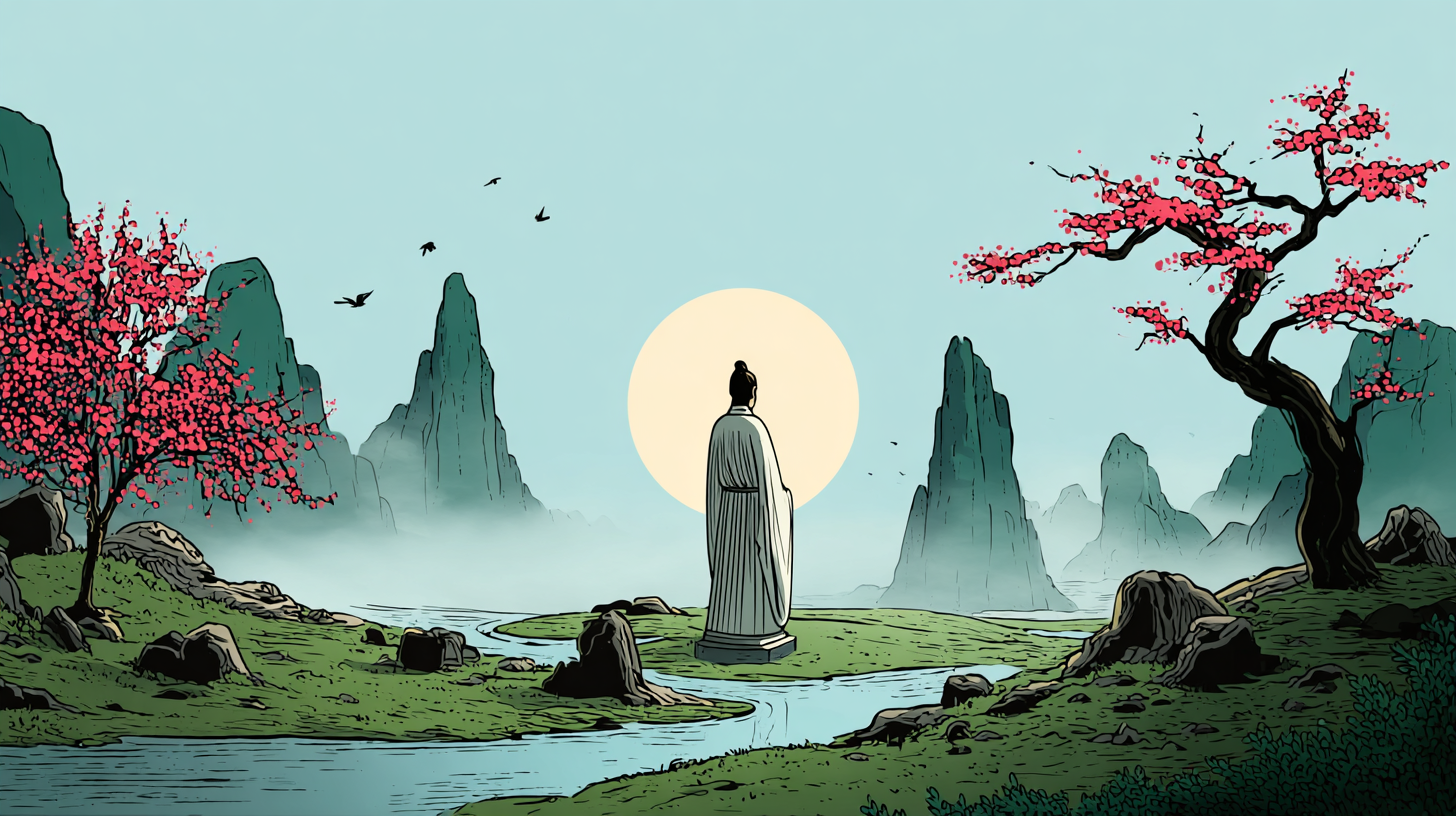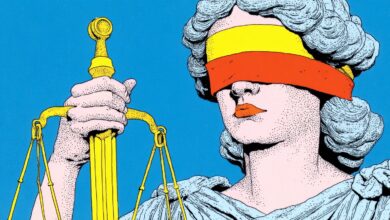Yang Zhu and the Freedom of the Self

Yang Zhu (440–360 BC) was a Chinese philosopher whose ideas were considered daring and transgressive for his time, but can strike us as modern in their focus on individual freedom. His lessons were shared through early texts and referred to by scholars in the following centuries.
He lived during the “Warring States” period, the phase of clashes between regional powers in what would later be unified as China. This was a time of not only military conflicts but also intellectual battles. Daoism was emerging as the dominant religious force in China (Buddhism would not arrive for another two centuries), and Yang Zhu’s philosophy reflects a Daoist worldview. The Zhuangzi, a Daoist text written between the 4th and 3rd centuries BC, describes the proliferation of ideas at that time:
The empire is in utter confusion, sagehood and excellence are not clarified, we do not have the one Way and Power… There is an analogy in the ears, eyes, nose and mouth; all have something they illuminate but they cannot exchange their functions, just as the various specialities of the Hundred Schools all have their strong points and at times turn out useful. However, they are not inclusive, not comprehensive; these are men each of whom has his own little corner.
It was amid this swirl of ideas that Yang Zhu’s philosophy took shape. To put his life in context of Chinese philosophy: he was born around 40 years after Confucius, the most famous Chinese philosopher, had died. Mencius was born during Yang Zhu’s last decade. It would be Mencius who would later comment on his work and declare its significance, calling the influence of Yang, and the rival school of Mo Zi (Mohism), like “floods of wild animals that ravaged the land.”
According to Sinologist Liu Wu-Chi, “He represented a new philosophical trend towards naturalism as the best means of preserving life in a decadent and turbulent world.”
Yang Zhu was an early advocate of “ethical egoism,” or the value of acting according to one’s own self-interest. He held that it was wrong to harm others, but sacrificing oneself for its own sake was not a virtue. This ran against the other major philosophies of the time—Mohism, which advocated general altruism, and Confucianism, which emphasized a hierarchical social order, ordained by heaven. His work was significant for the understanding of xing: one’s inborn nature or essential character.
According to historian Erica Brindley:
Yang Zhu, like Mencius, appears to have viewed the self and human body as an important resource for universal, objective forms of authority through xing. We see this through the following quote from Mencius, which states: “Even if he were to benefit the world by pulling out a single hair, he would not do it.”
These were revolutionary thoughts at the time. Yang Zhu was challenging the ideas of duty and also of prescribed order, in his argument for making one’s own choices.
Yang saw humans as self-interested individuals, and believed that this was the proper way to live. This, paired with the developing idea in Daoism of Yang Zhu’s egoism, was seen as anticipating the Daoist search for individual immortality—although Zhu argued that we should accept our allotted time on the earth and seek neither to shorten nor to prolong it.
We should not deny ourselves pleasure or overindulge. Do not harm anyone else. Mind your own business, and be at peace with the world.
Additional Reading
Erica Brindley, “Individualism in Classical Chinese Thought,” Internet Encyclopedia of Philosophy.
A.C. Graham, Chuang-Tzu (Hackett, 2001).
Karyn Lai, An Introduction to Chinese Philosophy (Cambridge University Press, 2017).
Liu Wu-Chi, “Yang Zhu,” Encyclopedia of Philosophy, Vol. 8 (New York: Macmillan, 1967).
The post Yang Zhu and the Freedom of the Self was first published by the Foundation for Economic Education, and is republished here with permission. Please support their efforts.



